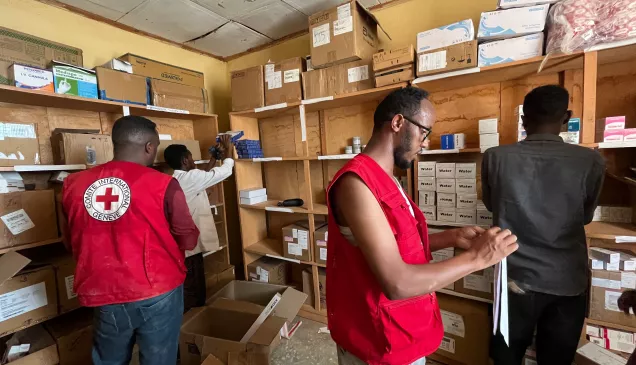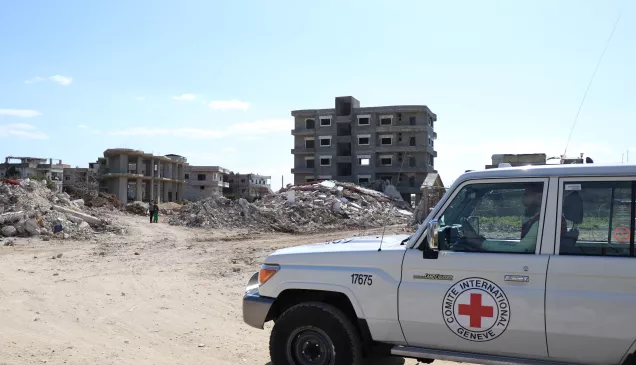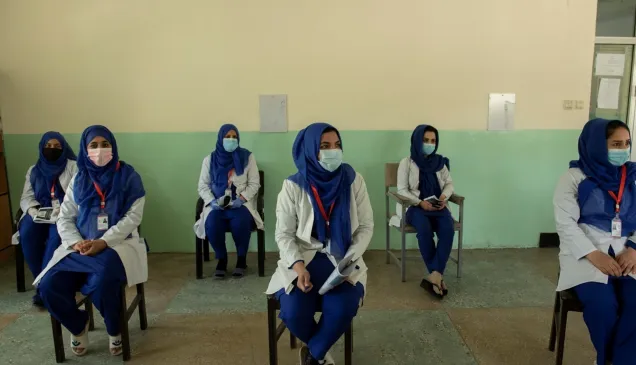Venezuela: Reducing malaria to improve the lives of people affected by violence in El Callao
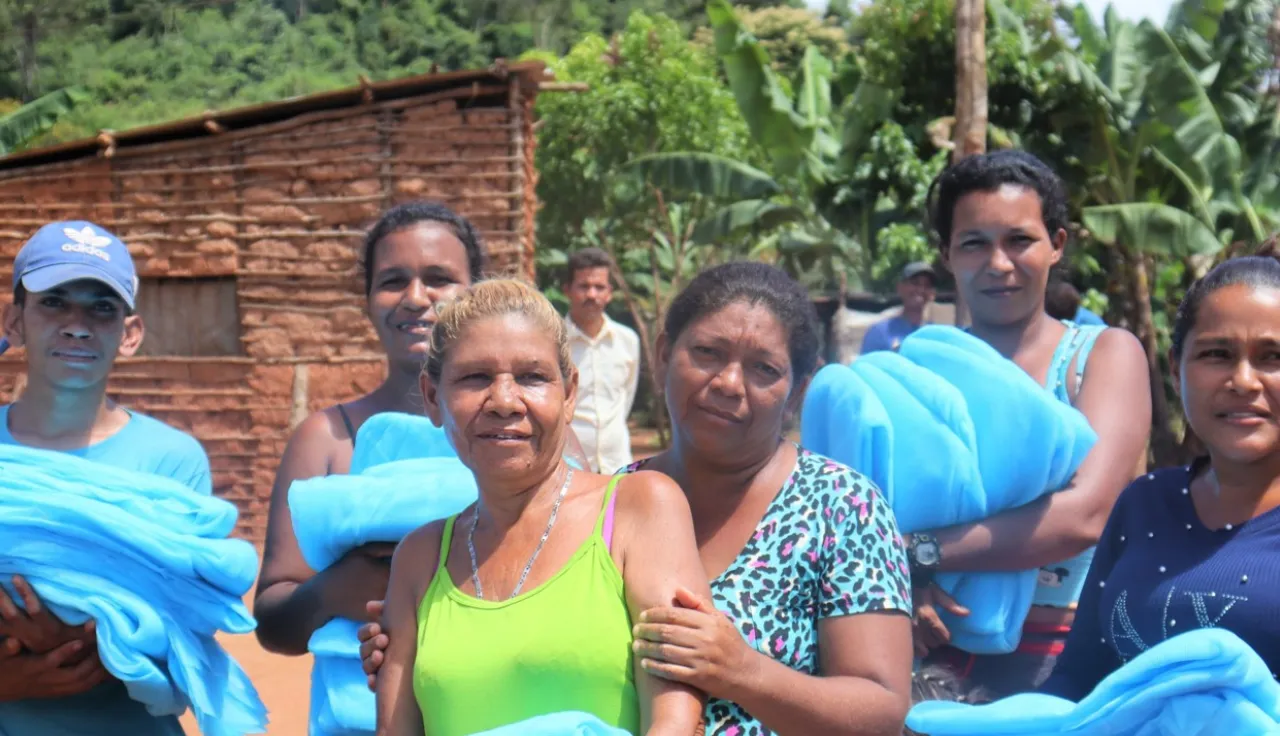
The town of El Callao in Venezuela is famous not only for its carnival and brightly dressed madamas, but also for being the centre of the mining industry in the south of the country, and especially for its goldfields. Recently, armed violence in mining areas surged at the same time as an outbreak of malaria – though this has been almost entirely dealt with thanks to the joint efforts of the community, health workers and the International Committee of the Red Cross (ICRC).
In 2019 cases of malaria in El Callao were rising daily, but there were not enough medicines for everybody and people were becoming seriously ill. The situation was worrying. But the untiring efforts of health workers and the community helped the town to turn the corner. "It's no longer like it was. Cases have gone down. When I started [in 2019], I was treating 20 or 30 patients a week. Now I have one or two," says Jickson Gutierrez, a young microscope technician who carries out rapid malaria testing in Parque Agrario, an area traditionally known for its gold mines.
Mr Gutierrez has seen and been a part of the measures that were taken to reduce infection and illness in El Callao, a town that is one of the most affected by the armed violence in the area, violence which is the reason for the ICRC's humanitarian activities there to improve people's day-to-day lives. Mr Gutierrez is one of 16 young people that the ICRC trained as microscope technicians in 2019 to support the community by diagnosing and treating malaria. "I've been working for three years in a rapid testing centre and I'm happy. I know that in some way I'm helping people from my community," he says proudly.
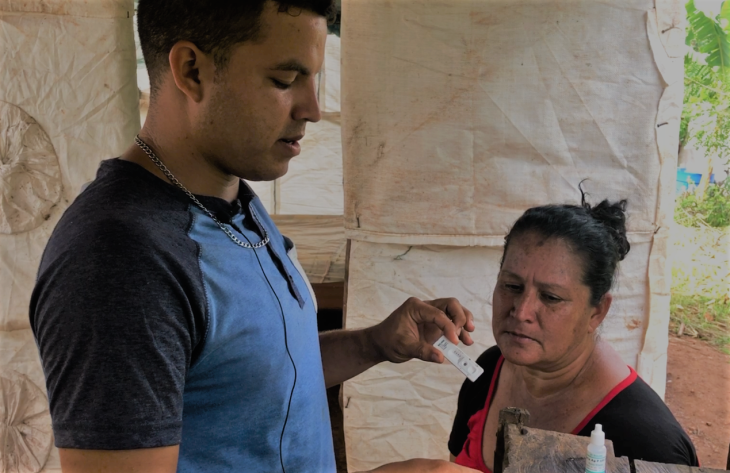
Florimar Rodríguez was responsible for public health in the area until March 2022. She was sent to El Callao in the middle of the outbreak and remembers that, in just one day, she managed to treat more than 500 patients. She has seen first-hand how El Callao is enjoying the results of people's efforts to fight malaria. Since the end of 2021, the town "has a lower rate of infection compared to 2017 and 2018". To bring down the number of cases, the ICRC worked with Ms Rodríguez and other health workers to establish a plan entailing prevention, awareness-raising, diagnosis and treatment.
To make progress, understanding the origin of the outbreak was key. Yonny Finol, a health inspector responsible for malaria cases in El Callao, says that cases began to rise in step alongside the boom in mining in recent years: "The economic situation pushed a lot of people to come here from other parts of the state and the country, and they met people who were already making a living in the mines. That was the impetus behind the epidemic."
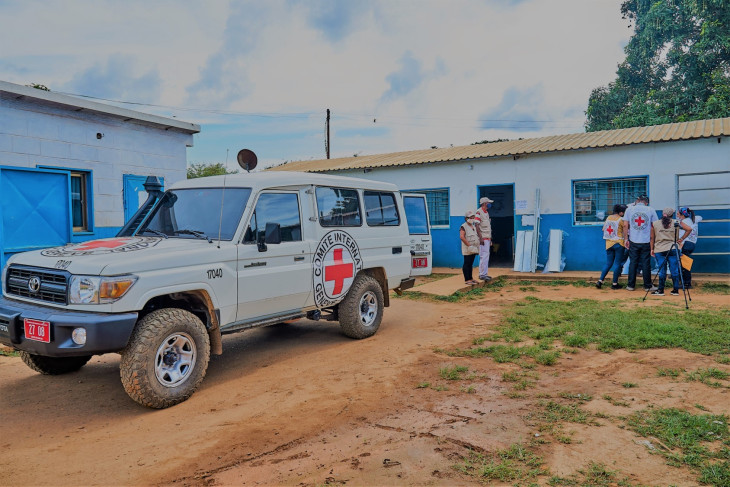
Most people in El Callao involved in the mining industry live and work in camps, which makes them more likely to contract malaria. In addition to the high rate of infection, the violence caused by tensions between armed groups in the area make it much harder for locals to access essential services, including medical care.
For that reason, the ICRC has been working since 2019 alongside the town's health authorities to deal with the issue of malaria by handing out huge numbers of mosquito nets, updating treatment guidelines, providing up-to-date training for all health workers – including training microscope technicians – opening new rapid diagnostic centres and providing new microscopes and supplies to process samples.
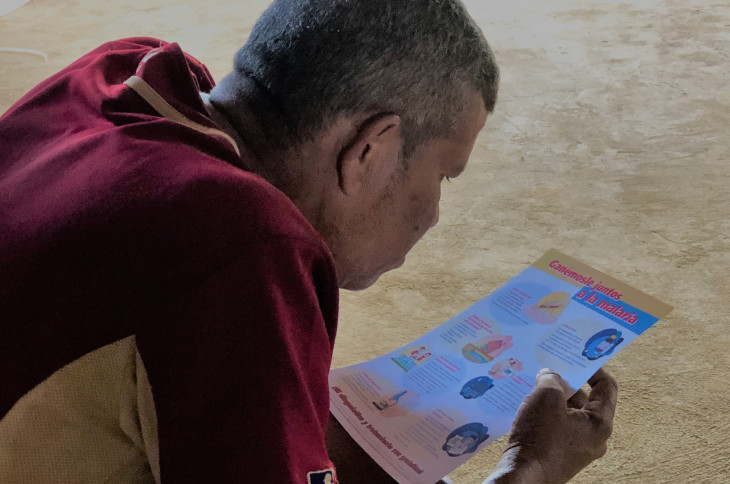
All these measures have ensured that the local population is now better informed and able to prevent the spread of malaria. Mr Finol adds that "people are more aware of the risks they run if they catch the disease. Mosquito nets are the main instrument for stopping transmission. We used to hand them out to people before, but they didn't use them. Now, they're the first things they ask us for."
hThe possibility to get tested and receive treatment for the disease in various locations across the town has made it more convenient and easier for people to access health services. The former centres were located far away from some communities, in particular those in mining areas, where "people don't go to health centres until they are very ill, as work is their priority," says Mr Finol.
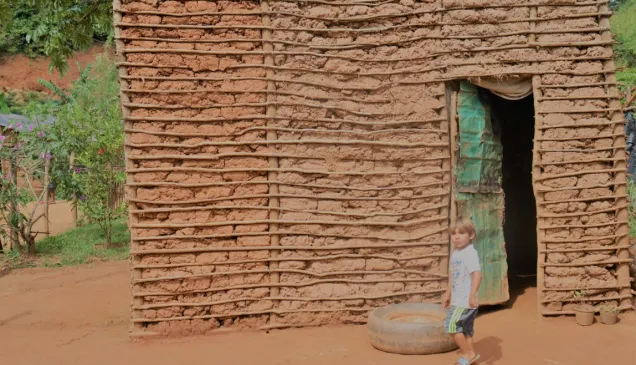
Inspector Finol indicates that the mosquito has also changed its habits, it no longer rests in the walls, but rather rests outside the houses, so that the technique of spraying inside the house is no longer as effective as before to kill it.</h2>
The environmental conditions in El Callao are perfect for the anopheles mosquito, the insect that spreads malaria, to multiply. Mining degrades vegetation, so animals move away, leaving only humans for the mosquito to feed on. Plentiful underground water in many places provide the mosquitoes with breeding grounds. In addition, some homes are made of adobe, which means they cannot be sprayed with insecticide. All of these factors have presented a challenge in addition to other issues facing the most vulnerable members of society, such as the lack of clean drinking water, forced displacement and armed clashes.
Health workers in the town are still working to protect the well-being of the community, to reduce the number of infections, raise awareness of how people can prevent the spread of the disease and underline how important it is for people to finish their treatment.
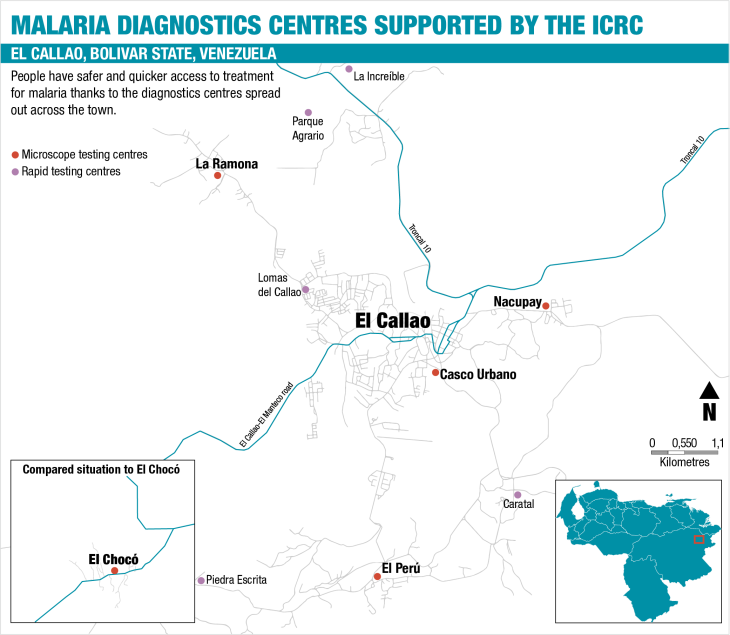
The ICRC meanwhile continues humanitarian work to reduce the suffering of people affected by armed violence in Bolívar State through dialogue with weapon bearers; renovating forensic facilities in San Félix, Upata and Ciudad Bolívar; supporting health centres; monitoring living conditions at El Dorado prison; providing job and business training to the most vulnerable; putting family members who have been separated back in contact; and much more.
Between 2021 and the first three months of 2022, the ICRC supported the town of El Callao's response to the malaria outbreak by:
• handing out 12,960 mosquito nets
• donating 1.9 tonnes of medicines and medical supplies to treat malaria
• donating 1.5 tonnes of hygiene and cleaning supplies
• training nine young people from the town as microscope technicians
• carrying out a radio campaign on how to prevent the spread of malaria and how to use mosquito nets.

